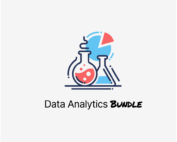Web analytics
Web analytics is the measurement, collection, analysis, and reporting of website data to understand and optimize web usage. It involves gathering data about website visitors, their behavior, and interactions with the website. Web analytics tools and techniques help businesses and website owners gain valuable insights into how users engage with their websites. These insights can be used to make data-driven decisions, improve user experience, and achieve specific business goals.
Here are the key aspects of web analytics:
Web analytics is instrumental in optimizing digital marketing efforts, improving website usability, enhancing customer experience, and increasing conversions. By understanding how users interact with a website, businesses can make strategic decisions to attract, engage, and retain their online audience effectively.
What does a web analyst do:
A web analyst, also known as a digital analyst or web data analyst, is a professional who specializes in analyzing website data to provide insights into user behavior, website performance, and digital marketing effectiveness. Their role is crucial in helping businesses and organizations make informed decisions based on data-driven insights. Here’s what a web analyst does:
In summary, a web analyst plays a crucial role in understanding, interpreting, and communicating website and digital marketing data. Their insights help businesses enhance their online presence, improve user experience, and achieve their goals in the digital landscape.
Why is web analytics important:
Web analytics is crucial for several reasons as it provides valuable insights into website performance, user behavior, and digital marketing efforts. Here are the key reasons why web analytics is important:
In summary, web analytics is important because it empowers businesses to make data-driven decisions, improve user experience, optimize marketing efforts, and achieve their online goals. It provides a comprehensive understanding of how users interact with websites and digital content, enabling businesses to adapt and thrive in the competitive online landscape.
What is data analytics:
Data analytics is the process of examining, cleaning, transforming, and interpreting complex sets of data to discover meaningful insights, draw conclusions, and support decision-making. It involves applying statistical, mathematical, and computational techniques to large volumes of data, with the goal of uncovering patterns, trends, correlations, and other valuable information. Data analytics is widely used in various fields, including business, healthcare, finance, marketing, sports, and research, to gain insights, make predictions, and optimize processes.
Data analytics plays a vital role in helping organizations gain insights, optimize processes, improve decision-making, enhance customer experiences, and achieve competitive advantages. It enables businesses and researchers to extract valuable knowledge from data, driving innovation and informed strategies.
What does a data analyst do?
A data analyst is a professional who interprets complex data sets to provide insights, identify trends, and support decision-making. They employ various techniques, tools, and methodologies to analyze data, extract meaningful patterns, and communicate their findings to stakeholders. Here’s what a data analyst does in more detail:
In summary, data analysts play a vital role in extracting actionable insights from data, helping organizations make informed decisions, optimize processes, and achieve their goals. Their work is essential in a wide range of industries, contributing to improved efficiency, strategic planning, and innovation within businesses and organizations.
Why is data analytics important:
Data analytics is critically important for various reasons, as it offers significant advantages to businesses, organizations, and society as a whole. Here are the key reasons why data analytics is important:
In summary, data analytics is important because it enables organizations to gain valuable insights, enhance decision-making, improve efficiency, innovate, and respond to challenges and opportunities effectively. By harnessing the power of data, businesses and societies can achieve sustainable growth, improve quality of life, and drive positive change.






